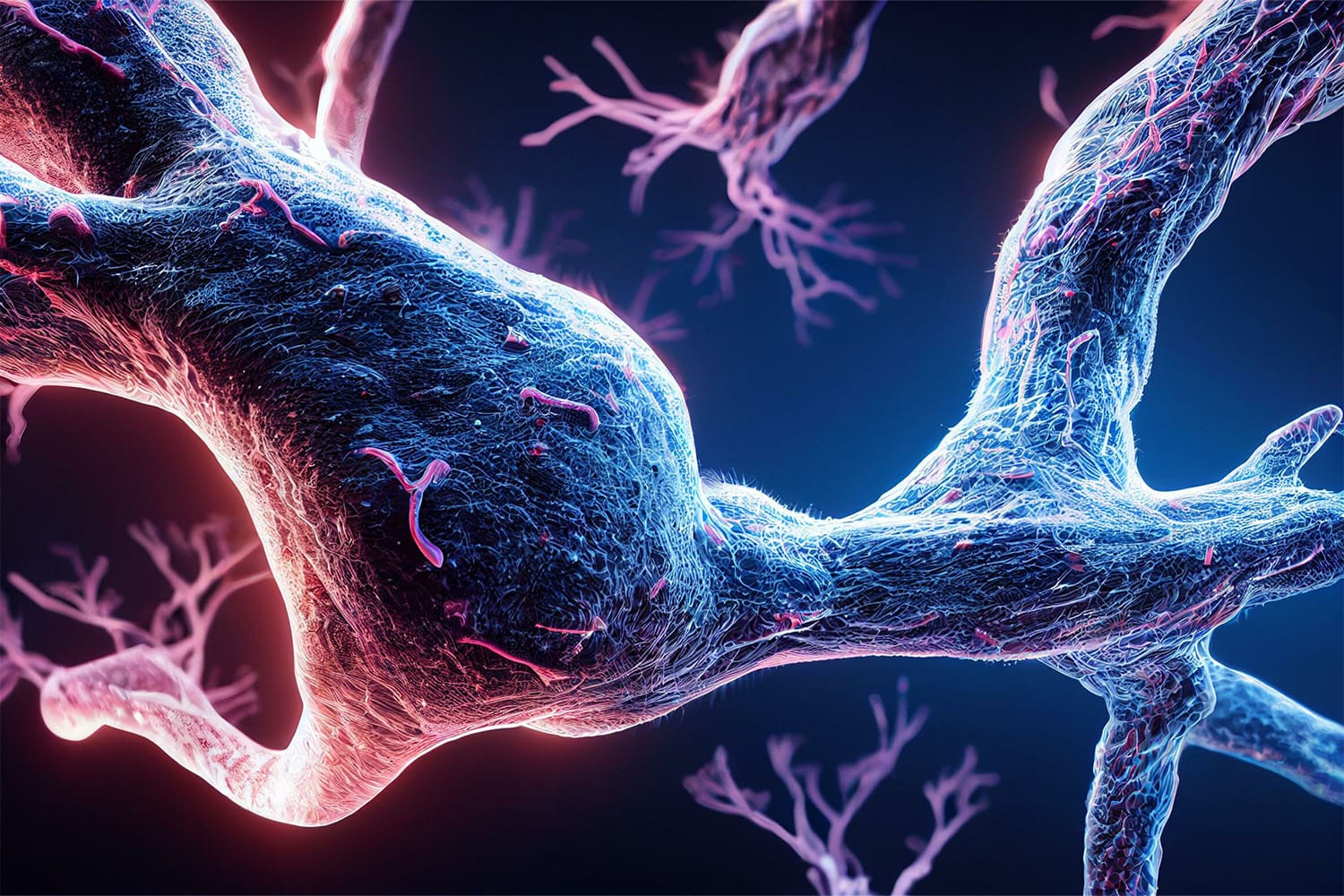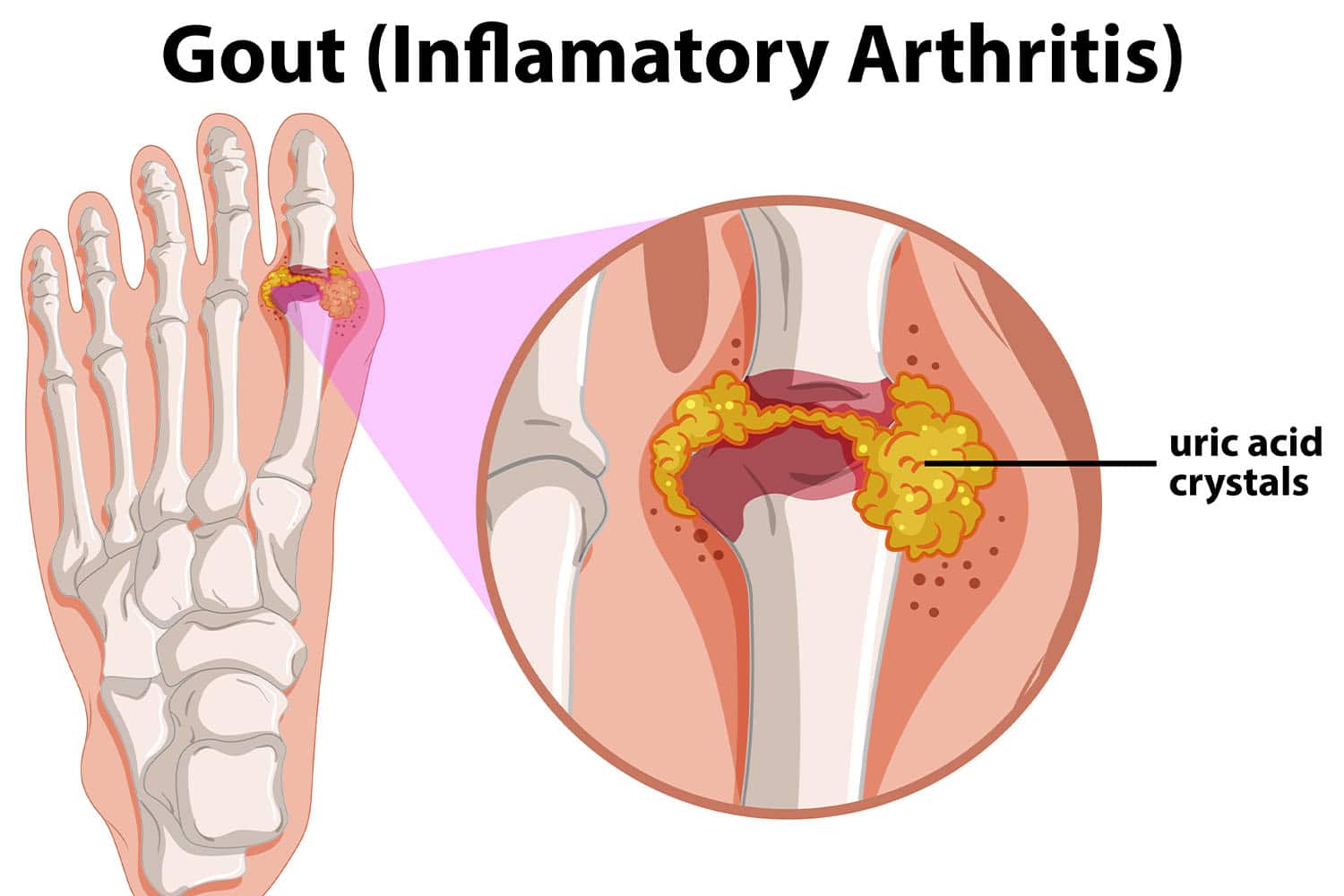Is Gout an Autoimmune Disease?
|
| If you’re living with gout, you might be familiar with the attacks of pain. These can be extremely intense and can keep you from the activities you love and even prevent you from doing basic household tasks. |
You may have wondered what causes gout and whether it could be classified as an autoimmune disease. If so, read on with Muscle MX.
What Is an Autoimmune Disease?

When you have an autoimmune disease, your body treats itself like a threat. Instead of recognizing and protecting good cells, the body destroys them, which then creates internal chaos.
Usually, any specific type of autoimmune disease affects only certain body parts — for example, diabetes causes the body to attack the cells of the pancreas. That said, if you have one autoimmune disease, you’re generally more likely to develop another.
Autoimmune diseases may affect the skin, joints, or even internal organs. They can cause health problems from an early age, or they can start affecting you when you’re older. They often run in families from a combination of genetic tendencies and shared environmental factors. There are well over 24 million Americans affected by one of the at least 80 autoimmune disorders we currently know of.
What Are Some Examples of Autoimmune Diseases?
How and where autoimmune diseases affect our bodies varies greatly, and there’s also a range when it comes to how serious an autoimmune condition is.
Some autoimmune diseases can be dealt with through simple dietary changes, while others may require extensive surgeries, physical therapy, medications, and dramatic lifestyle changes. Here are some of the most well-known autoimmune diseases.
Rheumatoid Arthritis (RA)
Rheumatoid arthritis is an autoimmune form of arthritis that attacks the lining around the joints, slowly wearing them down. It can cause intense swelling, burning, and aching pain that often comes in flare-ups. It’s not a curable condition, but it’s treatable with medications, exercises, hyaluronic acid injections, and in more extreme cases, joint replacement surgeries.
Lupus
This disease attacks the body’s tissue and internal organs. Often lupus causes rashes on the skin, fevers, pain in the joints, and debilitating fatigue.
Treatment for lupus often involves using NSAIDs (non-steroidal anti-inflammatory drugs), like ibuprofen, or steroid medication for flare-ups.
Fibromyalgia
There’s a lot that still isn't known about fibromyalgia, but it involves damage to the central nervous system. If you have this autoimmune disorder, you’ll experience widespread pain and soreness in the muscles throughout the body, extreme fatigue, brain fog, insomnia, and recurring headaches.
Celiac Disease
If you have celiac disease and eat gluten (a protein found in wheat, barley, and rye), it triggers an immune response from your body that damages the intestines. Long-term damage from celiac can cause malabsorption of important vitamins and minerals.
Crohn's Disease
Crohn's attacks the digestive tract and causes painful inflammation that causes abdominal cramping. Certain foods can trigger Crohn’s, especially rich, fatty, spicy, and fibrous food. There isn’t a known cure for Crohn’s, but there are medications and supplements that help with flare-ups. In severe cases, intestinal surgery is needed.
Addison’s Disease
The adrenal glands sit above your kidneys and make some of the hormones that help your body function properly by regulating your heart rate and blood pressure.
Addison’s disease causes the adrenal glands to produce less cortisol, which is one of these hormones. Addison’s is not a very common disease, but those who have it are generally fatigued and may have stomach problems, pain in the joints, and dark patches on their skin.
Graves’ Disease
This condition is also called hypothyroidism and occurs when the thyroid produces too many hormones. One of the main markers of graves’ disease is bulging eyeballs, but anxiety, weight loss, sensitivity to heat, and hand tremors are also common symptoms. You can often treat Graves’ disease with medication that regulates hormone production. However, in more severe cases, the thyroid might be removed.
What makes autoimmune illness so tough to deal with is that it usually isn’t curable or reversible — this means that treating these types of diseases is more focused on managing symptoms and limiting the number of flare-ups of pain.
What Is Arthritis?

Gout is a type of arthritis, which means it has to do with the inflammation of joints in the body. There are many different forms of arthritis, with osteoarthritis being the most commonly diagnosed.
Often, particular types of arthritis (like osteoarthritis) can develop in a joint because of age and wear and tear on that joint over time. Other times arthritis conditions are autoimmune and are caused by the body attacking its own joints.
There are over 250 joints throughout the human body. In this number are many joints that we rely on each day to perform basic tasks. Some of these joints include the:
- Neck
- Spinal vertebrae
- Shoulders
- Hips
- Knees
- Ankles
- Toes
- Wrists
- Fingers
Arthritis can cause a joint to become inflamed by damaging the ligaments, tendons, or cartilage that surround the joint. It can also affect the fluid surrounding the joint, keeping it lubricated so it moves smoothly. This can end up having a domino effect — if one joint isn’t working properly, another joint may start overcompensating and become more susceptible to injury or arthritis.
What Is Gout?
Gout is a type of inflammatory arthritis that can cause sudden “pain attacks.” Gout is usually felt in the knees, ankles, and, most commonly, the big toes. If you are hit with an attack of gout, it may be difficult to do much of anything until the pain starts to subside.
What Are the Symptoms of Gout?
Gout attacks can cause extremely painful, swollen, and tender joints. Because they usually come on suddenly, there is often minimal warning between feeling fine and having a gout attack. Once the attack starts, it will get worse very quickly.
Gout attacks tend to happen at night, often when the body is at rest. This is because when we go to sleep, our hormone, temperature, and hydration levels change.
What Causes Gout?
Gout was traditionally called “the disease of kings” because it was associated with eating too much red meat.
While consuming too much red meat can contribute to developing gout, it’s technically caused by a buildup of uric acid in the joints. Uric acid forms when purines, chemicals from certain food products, break down after we eat.
When too much of this acid is produced, it crystallizes in the joints, and the immune system response causes inflammation in the joints.
What Are the Risk Factors for Gout?
There are a number of risk factors that can increase your risk of developing gout, including:
-
Injury: If you experience trauma or have an operation on a joint, there’s a higher likelihood of getting gout in that part of the body.
-
Weight: Being overweight brings a higher risk of developing gout because the body produces more uric acid, and the kidneys cannot get rid of it as efficiently.
-
Genetics: If someone in your family has suffered from gout, you’re more likely to develop it.
-
Diet: Red meat, fruity drinks, and alcohol consumed in high quantities create more uric acid.
-
Diseases: If you have another illness, especially one that affects the kidneys, you’re more likely to develop gout.
-
Medication: Some medicines, including aspirin, can cause a rise in uric acid in the body.
Is Gout an Autoimmune Disease?
Gout isn’t classified as an autoimmune disorder because it doesn’t result from the body attacking itself. There are some similarities between gout and rheumatoid arthritis (RA), which is an autoimmune disorder. RA also causes painful inflammation in the joints and can lead to a loss of movement and mobility in the joints it affects. The same thing can happen with gout, but it’s because of the buildup of uric acid, while RA directly attacks joints, eroding them over time.
It’s generally thought that RA and gout are incurable, so treatment is focused on managing symptoms. Because gout has a very specific cause, lifestyle and habit changes can generally help manage it — but this is much more difficult with RA, which is autoimmune.
How Can You Manage Gout?
You may feel powerless while experiencing an attack of gout, but there are ways of lessening the severity and frequency of these attacks.
Here are a few ways to manage gout:
-
Cold compress: Applying an ice pack to an area that’s experiencing a gout attack is probably the quickest way of getting some fast relief.
-
Medication: NSAIDs (Non-steroidal anti-inflammatory drugs) like ibuprofen can help to lessen inflammation. These can be purchased over the counter, but other more powerful NSAIDs can be prescribed by a doctor for more severe pain.
-
Hydration: Probably the most important thing that can be done for dealing with gout in general, but especially when experiencing an attack, is to stay hydrated. Water helps flush uric acid from your system, which can help lessen the inflammation.
-
Diet: Cutting out foods high in purines is crucial to regulating uric acid levels. Talking to your healthcare provider about what dietary changes to make so that you have fewer attacks is super important.
-
Take it easy: If you’re in the midst of a gout attack, it’s very unlikely that you will want to do anything other than rest the painful joint. That said, it’s important to remember not to agitate a joint affected by gout by overdoing it physically. Take a break.
Living With Gout
The good news is that even if you have gout, it can become much better with some lifestyle changes and treatments, and with some diligence, you may get to the point where it doesn’t bother you anymore. Talk to your healthcare provider about ways to lessen your uric acid and get back to a life less stressed by gout.
Sources:
Autoimmune Disease Symptoms | MedlinePlus.
Crohn's disease - Symptoms and causes | Mayo Clinic.
Addison's Disease: What It Is, Causes, Symptoms & Treatment | Cleveland Clinic
Nocturnal Risk of Gout Attacks | PMC.
Introduction to Gout | John’s Hopkins












































